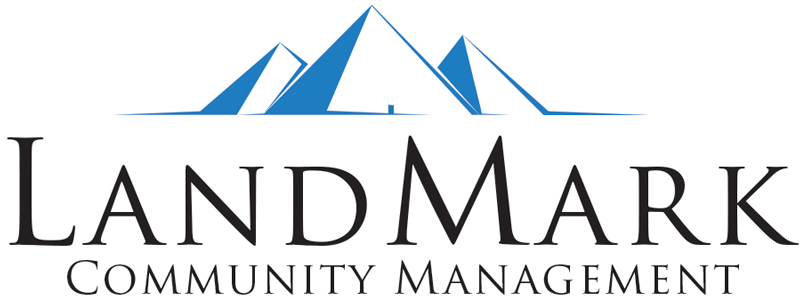Creating an HOA budget is hard for any community but is essential to running an association. It can determine what the community will look like down the road and even impact homeowner satisfaction. Here’s how to make one to ensure the HOA stays financially stable.
What Is an HOA Budget?
A homeowners association budget or condo budget is a community’s financial plan. It contains the community’s anticipated earnings, expenditures, and reserve funds. Communities typically plan for one year, hence why it’s also called the HOA annual budget.
How to Plan an HOA Budget
Planning an HOA budget is often a difficult balancing act. That’s because the budget will determine how much the community’s HOA fees will be. This may impact homeowner satisfaction and raise concerns among community members.
On the other hand, communities cannot simply charge the lowest fees possible as the HOA still needs to fulfill its duties. Otherwise, the HOA may need help to make proper repairs or manage emergencies. They may need to charge special assessments to compensate for unexpected costs, leading to discontentment.
Homeowners associations must carefully consider what the community needs to ensure they don’t overcharge or undercharge their members. Here are some HOA budget guidelines to remember when creating the community’s financial plan.
1. Assemble a Budget Committee
The board members may think they can handle all HOA financial planning alone. But, it can be difficult to juggle with all the other tasks board members must accomplish. Thus, creating a dedicated committee focusing on the budget is best.
Creating a committee comprising board members and homeowners, including the treasurer, president, and community manager, is also best. Moreover, the team must include budget and finance committee heads.
2. Schedule a Planning Meeting
With a committee assembled, the team should start scheduling an HOA budget meeting. It should be scheduled on a free day without other community meetings or events. This way, the committee members can come undistracted and with enough energy.
In addition, make sure that all committee members can attend. It’s also best to dedicate one full day or, at the very least, an afternoon to the meeting. Do not rush the process, and make sure to consider all factors.
3. Establish Clear Goals
The HOA operating budget serves to fulfill the community’s goals. Hence, the committee must carefully consider the HOA’s long-term objectives. What does the community want to happen in the next 3 to 5 years? For example, the community may want to add more amenities or renovate common areas. Keeping these in mind will help the team know what to plan for.
The planning team should carefully consider the board’s wishes and the rest of the community’s ideas. Thus, conducting a survey beforehand is best to understand what the homeowners want or need.
4. Understand the HOA’s Current Financial Standing
What are the community’s present HOA finances like? Evaluating and analyzing the community’s financial records for the past two years is best. Compare the previous budgets and actual expenditure reports to see where the community may be falling short. Keep track of the community’s spending and where it could have allocated more funds.
5. Plan for Repairs and Replacements
One of the most important HOA budget requirements is planning for maintenance, repairs, and replacements. In fact, this should take up a significant portion of the HOA budget. That’s because the association’s primary duty is to preserve common areas and property values.
However, HOAs should remember that they cannot simultaneously repair and replace all amenities or facilities. Doing so could dramatically increase assessments and burden the community members.
Furthermore, each repair or replacement project requires careful attention. Thus, doing them all together could lead to improper, incomplete, or substandard repair or replacement jobs. Make sure to space each job evenly
6. Evaluate Current Contractors and Insurance
The budget meeting allows the HOA to reevaluate its insurance plans and contractor agreements. What does the community make use of or need? Are these services necessary or expendable?
Moreover, the HOA must assess if it can get the same services at a lower price from another vendor. They should also account for projected inflation as contractors may gradually increase their prices yearly.
7. Budget for a Reserve Fund

The HOA must always create and maintain an ample reserve fund to shoulder unexpected costs. This can keep the community afloat during emergencies and reduce special assessments. It’s best to allocate 15% to 20% of the budget toward the community’s reserves. Communities may also consider doing a reserve study to know how much to allot.
8. Expect Increases
Costs will increase every year as inflation rises and markets change. The cost of vendor services, utilities, and materials will increase. As a result, planning committees must keep this in mind as they plan their HOA budget.
To keep things manageable, HOAs can call their current vendors to see if they plan on increasing their fees. They should also pay attention to financial trends and inflation.
9. Create the HOA Budget
After analyzing all the important factors, the committee can create the HOA budget. They should list all expected costs and estimated revenues. Committees should remember to overestimate costs when in doubt to ensure they don’t come up short.
Once the committee determines the budget, they should divide it by the number of unit owners. This will be the HOA fee each homeowner must pay for the coming fiscal year.
Best Practices for HOA Budgeting
What are some HOA budget best practices to keep in mind? Here’s what committee members should remember as they create their community’s financial plan.
1. Check the Governing Documents
The governing documents may outline specific requirements for creating the HOA budget. They may also dictate the services and maintenance requirements the HOA must provide. Board and committee members must review these requirements and follow them.
2. Be Conservative
Homeowners associations must stay conservative when it comes to projecting budgets. Expenses are unpredictable and almost impossible to prepare for completely. Hence, the HOA should keep these conservative practices in mind:
- Expect revenues to come solely from HOA dues
- Anticipate expenditures using current economic conditions
- Excess operating funds should be 10% to 20% of the HOA’s annual dues
3. Expect Delinquencies
Associations should always expect to have delinquent homeowners, as not everyone may pay their assessments on time. Some may even refuse to pay their dues completely. Therefore, HOAs must account for bad debts when estimating revenues.
4. Be Transparent
Homeowners associations must communicate with the homeowners regularly. The community will need to approve the budget at the annual meeting. Being transparent during planning will allow homeowners to trust the board’s decisions.
Keeping Your Community Financially Healthy
Homeowners associations may dread the idea of creating the HOA budget. But, it’s not difficult if the HOA properly creates a dedicated committee and plans. Doing so can help set the community’s finances straight and keep it financially stable.
Some HOAs may have a hard time planning the budget themselves. In this case, hiring a professional company like Landmark Community Management may be a good idea. We provide HOAs around Texas with various HOA management and financial services. Call us today at 512-569-5527 or contact us online for more details!


